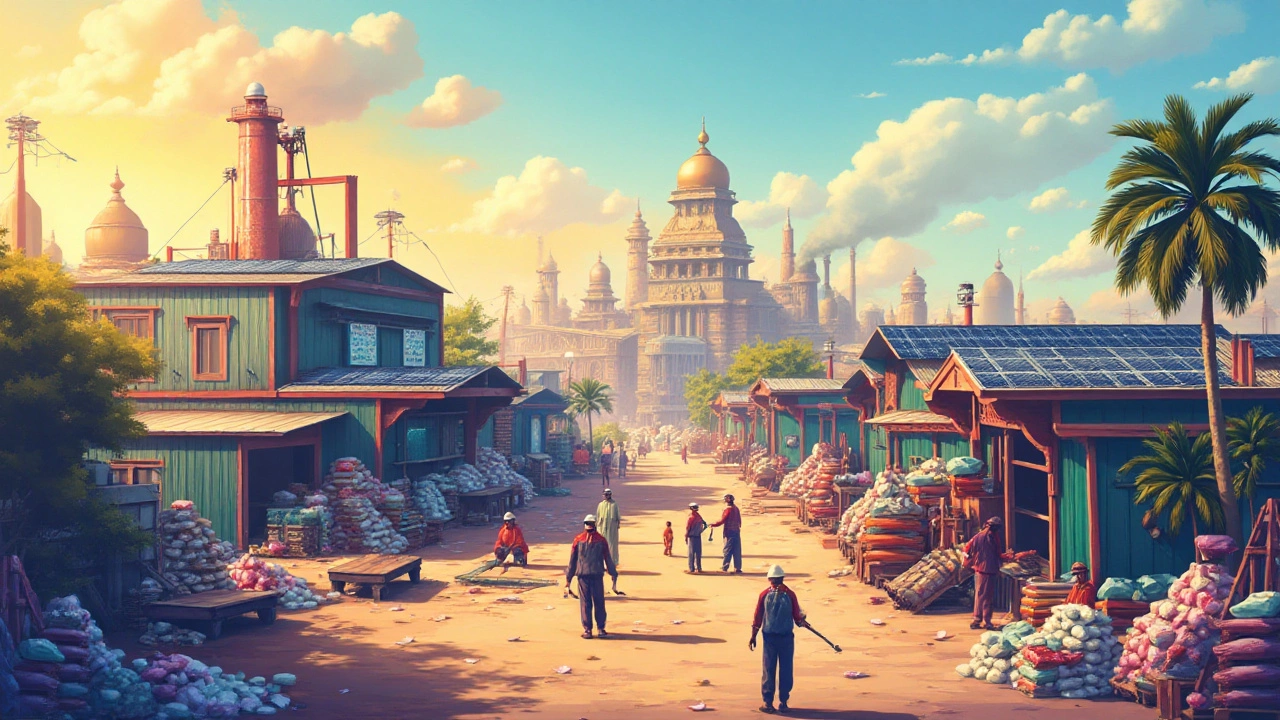Global Plastic Companies: Leaders, Trends, and How to Pick the Right Supplier
When you need plastic parts, you’re really looking for a reliable partner that can turn raw polymer into something useful. Global plastic companies are the firms that design, melt, shape, and deliver those parts at scale. From tiny injection‑molded gears to massive pipe sections, they cover almost every industry – automotive, packaging, medical, construction, you name it.
Knowing the landscape helps you avoid costly delays and low‑quality products. Below we break down who the major players are, what makes them stand out, and the questions you should ask before signing a contract.
Key Players and Their Strengths
Today the market is dominated by a handful of multinational groups. Companies like **BASF**, **ExxonMobil**, **LyondellBasell**, **Dow** and **SABIC** own the biggest polymer plants and can supply raw resin in bulk. Their scale means lower material costs and consistent quality across continents.
On the finished‑product side, firms such as **Alpla**, **Plastipak**, **Berry Global**, **Mondi** and **RPC Group** specialize in molding, extrusion, and conversion. They often have dedicated R&D teams that tweak formulations for specific applications – think UV‑stable outdoor parts or food‑grade containers.
Many of these companies are also pushing sustainability. Look for those that offer recycled‑content grades, bio‑based polymers, or closed‑loop take‑back programs. That can help you meet green‑procurement policies and appeal to eco‑conscious customers.
Choosing the Right Plastic Partner
Here’s a quick checklist you can use when vetting a supplier:
- Capacity: Can they handle your order volume now and as you grow?
- Quality certifications: ISO 9001, ISO 14001, or industry‑specific standards like ISO 13485 for medical parts.
- Material range: Do they stock the resin you need – HDPE, PP, PET, POM, etc.? If you need a custom blend, do they have an R&D lab?
- Lead times: How quickly can they turn a design into a finished part? Ask for typical timelines on tooling, pilot runs, and volume production.
- Pricing transparency: Get a clear break‑down of resin cost, processing fees, tooling charges, and any sustainability premiums.
- Logistics: Do they ship from a nearby hub or have a global network that reduces freight costs?
Don’t forget to ask for reference projects similar to yours. Real‑world examples show whether the supplier can meet tolerances, finish requirements, and regulatory constraints.
Finally, think about the partnership beyond the first order. A good global plastic company will offer technical support, help you troubleshoot design issues, and keep you updated on new material options. That ongoing service often saves more money than a rock‑bottom price.
In short, the world of plastic manufacturing is vast, but you don’t have to navigate it blindly. Focus on capacity, quality, material variety, lead times, clear pricing, and logistics. Pick a partner that aligns with your sustainability goals, and you’ll get parts that fit, last, and keep your customers happy.

World's Leading Plastic Producers: Spotlight on Industry Giants
In the complex landscape of plastic manufacturing, uncovering the biggest producer involves understanding market dynamics, production capacity, and global influence. With the demand for plastic products increasing, a few industry giants dominate the market by navigating challenges and innovations. This article explores the leading companies shaping the plastic industry, highlighting their contributions and significance. From petrochemical roots to sustainability initiatives, learn about the players driving the future of plastics.
Read More